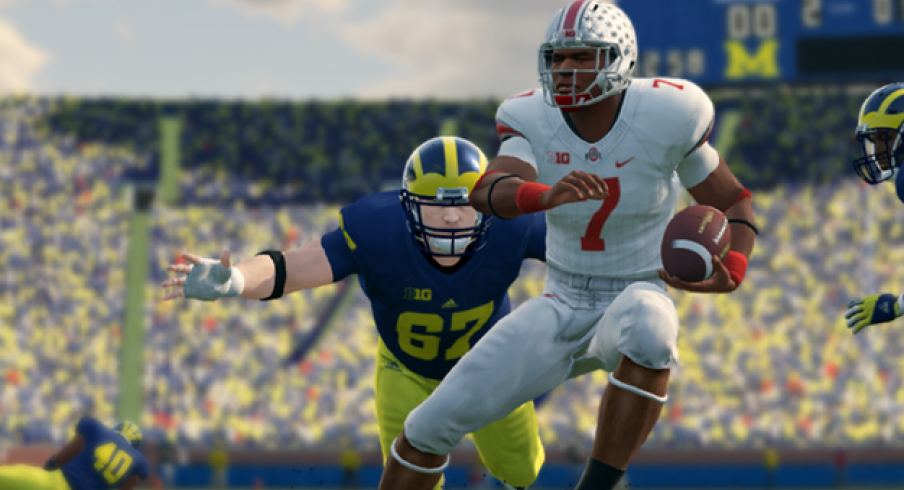In the olden days, when we had EA Sports' NCAA Football franchise, players names only appeared as "[Position] [Number]." This could be altered though, and it always seemed announcers knew even the most difficult players' names.
It turns out, according to documents unsealed this week by District Judge Claudia Wilken, that wasn't an accident. Players names were hidden within the game code, something the NCAA knew:
Using the rosters in the games, and maybe the names of student-athletes on jerseys in the game would be worthwhile," the NCAA document said in summarizing CLC's position. "Reasons: 1) EA would put into each game all players on the entire roster and they include over 140 Div. I schools in their games; 2) Rosters are imbedded [sic] within the product/game (hidden, in a way) not on the cover/outside when you buy the product; and 3) this would wipe out 3rd party infringers -- better to have schools/conferences and the NCAA control this.
What does this mean in non-jargon? Allow SB Nation's Patrick Vint to break it down for us:
This also shows that the NCAA knew that the rosters were implicitly part of these games going back to at least 2007, a fact that could be an issue in the NCAA's claim against Electronic Arts and the CLC. The NCAA's claim against the video game manufacturer -- brought after EA entered a settlement with the players this fall -- alleges that it was EA's mistakes that could lead to NCAA liability. The NCAA's knowledge of, and fairly explicit consent to, EA's likeness usage could make it difficult for its claims to survive.
In May 2013, a former EA Sports producer admitted under oath that the company replicated real players, and a company executive claimed the NCAA approved matching virtual jersey numbers to real numbers.
So to recap: the NCAA is allowed to sell an athlete's likeness and image to a third party for profit, but its athletes — who aren't employees, by the way — aren't allowed to do the same.
Doesn't seem very American to me, but I guess that's why this is in front a judge in the first place.
